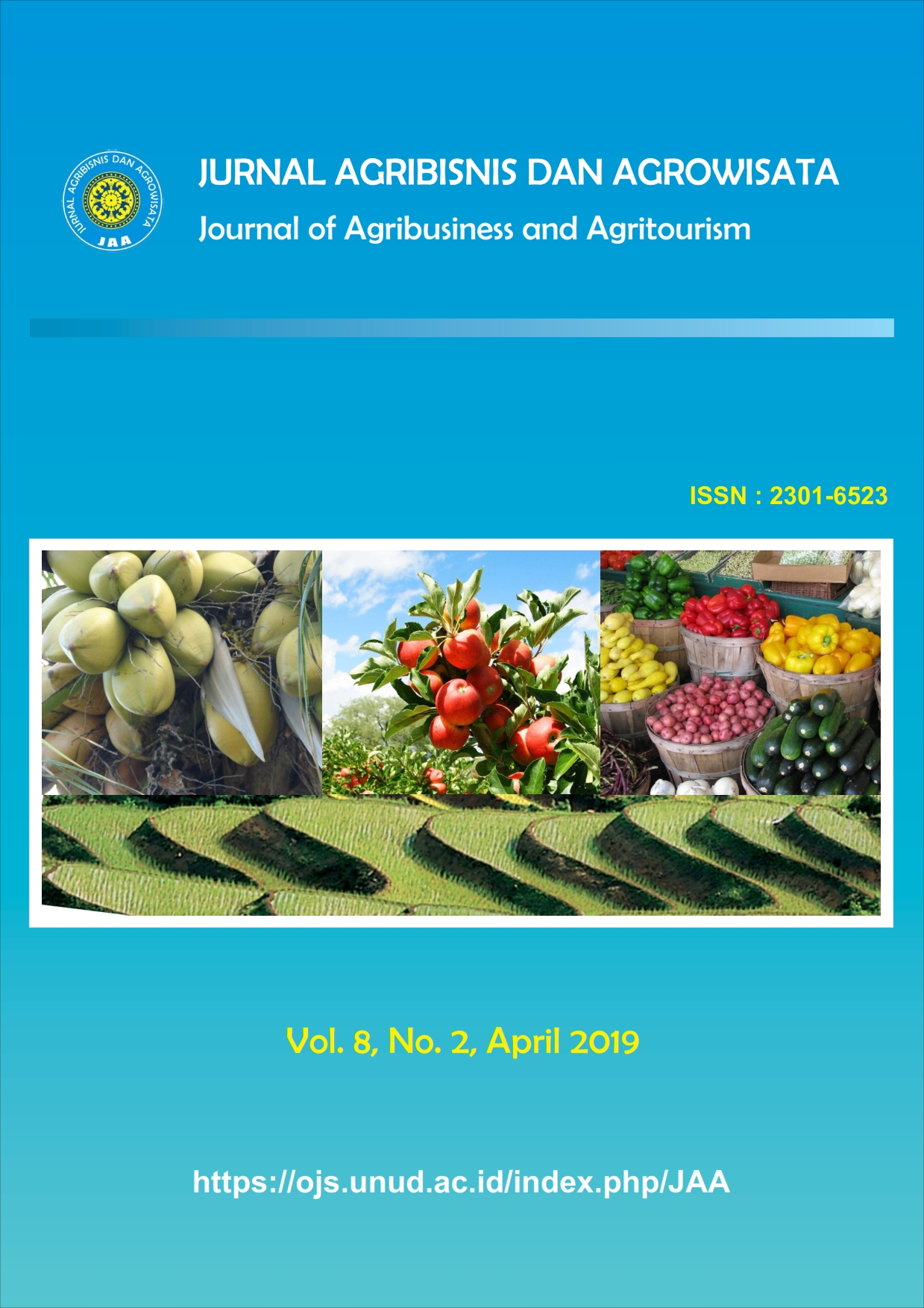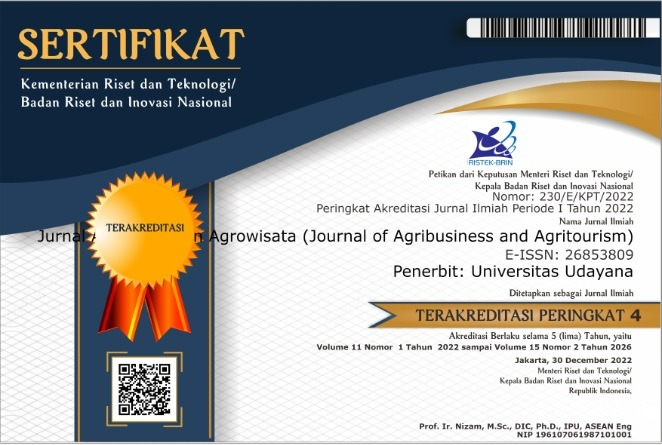Analysis of Preference and Satisfaction of Non-Cash Food Aid Recipients (BPNT) Against Rice in Denpasar City
Abstract
Analysis of Preference and Satisfaction of Non-Cash Food Aid Recipients (BPNT)
Against Rice in Denpasar City.
Income differences are one indicator of differences in social classes. The role of
government is very influential in the lower middle class. The government assistance
program in the form of Rastra, is channeled in non-cash by transforming from assistance
to subsidy patterns to social assistance (food). The purpose of this study to determine
the characteristics, preferences and customer satisfaction of rice recipients of Non-Cash
Food Aid (BPNT) was assessed from the level of importance and level of performance
of the attributes of rice provided by rice suppliers in Denpasar City. Data collection
method with survey technique and indepth interview. Data analysis used is descriptive
analysis, Customer Satisfaction Index and Importance Performance Analysis. Based on
this study the characteristics of the dominating respondents, namely the owner of an
electronic account are women as the couple's head of the family. The high and low
education does not affect the income they have. Most respondents are from the lower
class who are registered as KPM and are entitled to rice assistance from the BPNT
program. Rice endurance is the highest value attribute that is an assessment of consumer
preferences. The satisfaction index of rice BPNT recipients with a total of 80.46% is in
the range of 81% - 100% in the category of very satisfied with some improvements
from the results of the IPA method. The results of the Cartesius diagram attribute of rice
resistance are the main priority to be improved because it is in quadrant I.







